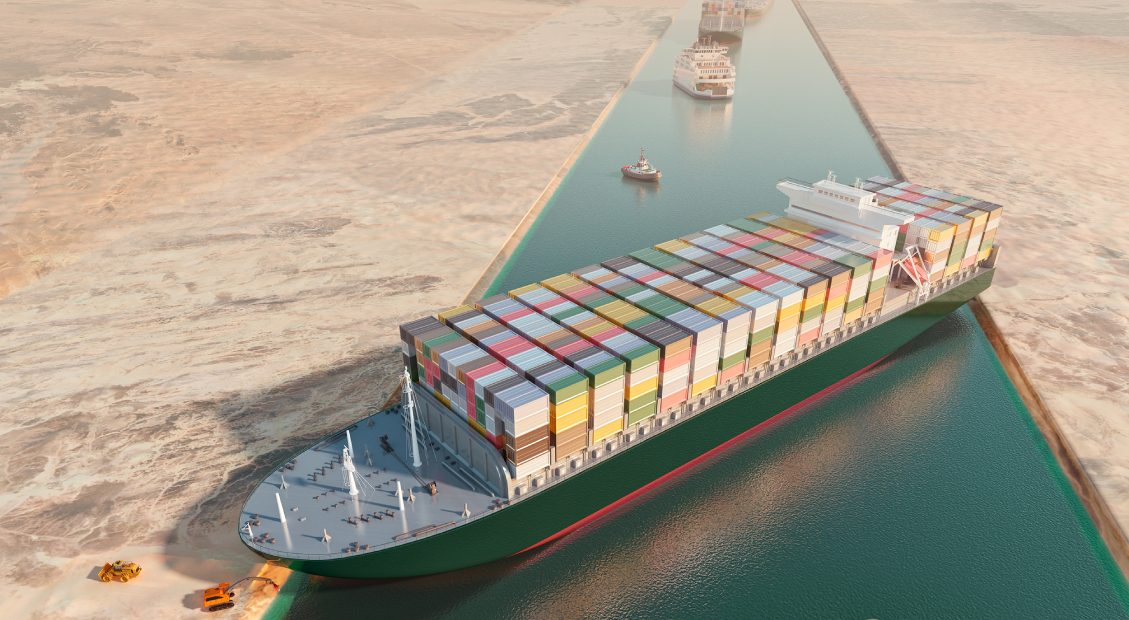What were your thoughts when you first saw the images of the large container ship Ever Given stranded at the Suez, blocking hundreds of others in the process? Some of us worried about supplies of coffee, toilet paper or the likes. Others fretted about the production of parts failing to reach factory floors, leading to unfulfilled contracts and lost revenues. At a time like this, when it is urgent to ensure delivery of health supplies, especially vaccines, to save lives and help economies, it is important to ensure that supply chains remain resilient and flexible despite overwhelming challenges.
At the Asian Infrastructure Investment Bank (AIIB), and as part of our commitment to an economically resilient future, we are concerned about how different factors can affect global value chains and the Infrastructure for Tomorrow.
Today, the production of goods is mostly fragmented into different locations, with each country specializing in a small part of the value chain. The completion of any single good depends on parts and services that come from different economies in the upstream and downstream production processes. This allows for efficiency of specialization—each economy produces the parts it is best at, given its capabilities and cost structure. Take the car for example. As it is easier to manufacture specific parts rather than the whole, there are tremendous economies of scale and cost advantages that arise from such specialization. In addition, this form of global value chain specialization allows developing economies to find easier pathways toward global production, where they can learn and upgrade along the way. Participation in global value chains is thus deeply connected to the economic development and growth of countries.
Because global value chains usually operate like well-oiled machines, we often take their smooth functioning for granted. Yet we have witnessed how incidents like the pandemic and the Suez Canal blockage can greatly disrupt global supply.
The health of global value chains relies on the quality of the underlying infrastructure. Goods need to be transported cheaply, predictably, sustainably and, in many instances, across multiple borders multiple times. When these goods reach the destination country, local logistics come into play to ensure that these goods are delivered from ports to warehouses to shelves. With the rise of e-commerce and the increase of “micro-package” deliveries to doorsteps, local logistics infrastructure from roads to cold-chain refrigeration to digital tracking have become ever more important. Infrastructure plays an important role in ensuring that supplies can get to where they are supposed to go.
We have to be clear on the following: Infrastructure is the unsung hero in these intricate processes, the arteries of global trade that supplies us with the coffee we drink from Starbucks in the morning, to the vaccines and medication we need, and the play-station we ordered online.
At the onset of the COVID-19 pandemic, there was much concern that global supply chains would be severely disrupted. Indeed, the supply shock from China in early 2020 rippled across the world, resulting in manufacturing stoppages in many economies. Then came the lockdowns of economies outside China. But by mid-2020, global production and trade mounted a strong recovery, driven in part by the recovery in China, and in part by how businesses worldwide innovated and adapted. Passenger planes were converted to ferry cargo, e-commerce accelerated to replace physical stores. Key infrastructure—deemed as essential services—continued to function, and the global supply chain proved to be more resilient than expected.
Nevertheless, the pandemic also exposed several vulnerabilities in the global supply chain. It has shown that critical supplies could be vulnerable to the production disruptions in certain economies. The bottleneck caused by Ever Given clearly demonstrated how disruptions to supply chains can have ripple effects, with one mega container ship affecting the delivery times of hundreds of other container ships that couldn’t pass through the canal.
Policy makers are also concerned with the potential of trade restrictions curtailing critical supplies, as trade tensions increase. At a deeper level, some countries have missed out on participation in global value chains completely, and some feel threatened by the loss or outsourcing of certain industries deemed critical. These vulnerabilities—real or perceived—will create longer-term uncertainties, alongside changes in technology, climate considerations, and geopolitics.
In the upcoming Asian Infrastructure Finance report for 2021, we will build on the body of existing work on global value chains, explore the deeper nexus with infrastructure, and highlight the investments and work that need to go forward from here. Infrastructure investment is a critical factor to increase and spread out the participation in global value chains and in the process, rejuvenate global trade and economic development.
See previous issues of the Asian Infrastructure Finance (AIF) report:


